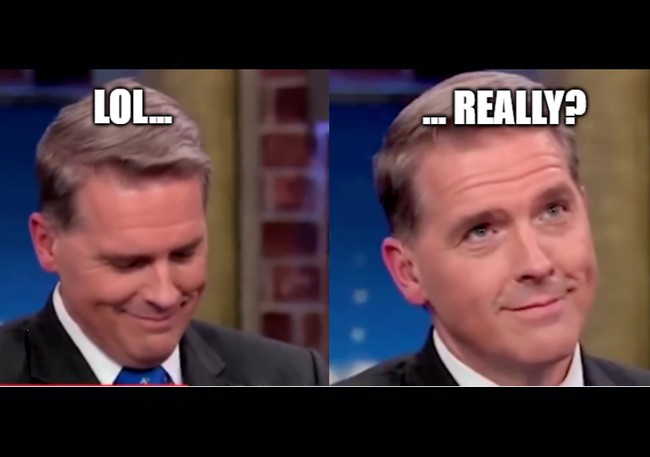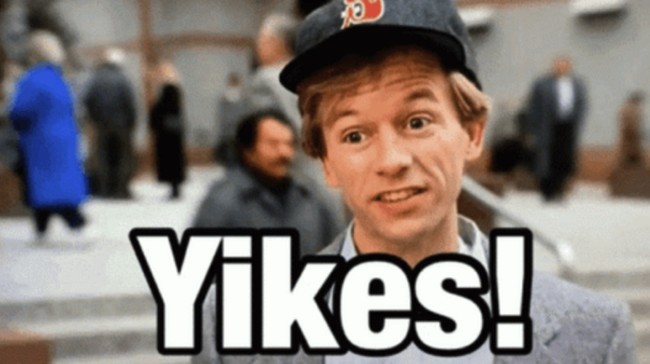ARTICLE AD BOX
The International Olympic Committee has a major problem.
Literally.
At a time when the sports world is banning Russian athletes because of the Moscow’s war on Ukraine, one of the IOC’s members holds the rank of major in the Russian army.
Yelena Isinbaeva — the major and a former pole vault world-record holder — is one of two Russian members of the IOC. The other, tennis chief Shamil Tarpischev, has actively supported mobilizing Russian athletes to fight against Ukraine.
Just weeks before the Paris 2024 Olympics kick off, the IOC — whose 105 elite members include global luminaries such as Prince Albert of Monaco, the emir of Qatar and world football boss Gianni Infantino — is facing a backlash for not dealing with the problematic Russians in its ranks.
While Isinbaeva has insisted her military rank is “nominal,” that is not the impression she gave when she was awarded the status in 2015 by then-Defense Minister Sergei Shoigu, or when she proudly marched in military uniform in Sochi in 2015 and sat next to President Vladimir Putin at Russia’s Victory Day parade in 2017.
For his part, in October 2022, Tarpischev said, “The creation of volunteer units among professional athletes is a good idea,” when asked about sending sportspeople to fight for Russia in Ukraine.
The IOC rules recommend that athletes and sports officials affiliated with the Russian army not be permitted to take part in the Paris 2024 Olympics. The IOC members “represent and promote the interests of the IOC and of the Olympic Movement.”
Senior Ukrainian officials are furious about Isinbaeva’s IOC membership. “We wrote a letter to the IOC asking them to ban all representatives of Russia from the organization,” said Vadym Hutzait, president of Ukraine’s National Olympic Committee. “We were told that Isinbaeva had left Russia and now lives in Europe, so the IOC sees no problem with her.”
Veteran observers of Russian sports and society are unconvinced the rank was “nominal” or has changed. “No evidence to support this has been presented to the public,” said Dmitry Navosha, a dissident Belarusian sports journalist who co-founded Tribuna.com and Russian sports outlet sports.ru.
“After years of supporting Putin, merely not supporting the war is clearly insufficient for maintaining a position in the IOC,” Navosha added. “Some form of public condemnation of this war and condemnation of Putin as an aggressor is still required.”
Over the years, Isinbaeva has been bestowed with numerous state honors, including the Order For Merit to the Fatherland (II and IV class), the Order of Honor, Honorary Citizenship of Donetsk and Volgograd and Honored Master of Sports of Russia.
 Yelena Isinbaeva — the former pole vault world-record holder — is one of two Russian members of the IOC. | Alexander Nemenov/Getty Images
Yelena Isinbaeva — the former pole vault world-record holder — is one of two Russian members of the IOC. | Alexander Nemenov/Getty ImagesA legacy of Soviet times, such awards typically include small financial bonuses. Although the sums involved are likely to be a negligible component of Isinbaeva’s income, they would testify to her continuing ties to the Russian state.
Isinbaeva did not respond to several requests for comment by POLITICO on multiple channels including WhatsApp, Telegram and email.
The Russian ministry of defense did not respond to a request for comment on whether Isinbaeva maintains her rank in the army and receives remuneration from the military.
Asked whether Isinbaeva had provided any documents confirming the revocation of her military rank, an IOC spokesperson said in a statement: “Like for the athletes, the situation of the IOC Members concerned has been assessed from the time of the invasion on 24 February 2022 and subsequently.”
“The understanding of the IOC Ethics Commission is that during this period neither Ms. Isinbayeva nor Mr. Tarpischev have had any contractual links with the Russian military or security agencies nor expressed their support to the invasion or the war in Ukraine,” the spokesperson added (using an alternative spelling for Isinbaeva’s name).
Promoting Putin
Isinbaeva — a two-time Olympic champion and multiple world-record holder in pole vaulting who has been a member of the IOC Athletes’ Commission since 2016 — has kept a low profile since Putin’s full-scale invasion of Ukraine.
She has not appeared in military uniform, has not actively supported the war and has almost disappeared from social media. Before the war, however, she was a cheerleader for Putin’s talking points and policies, helping to popularize and broadcast his politics.
Isinbaeva cried in front of Putin and confessed her love for him as she thanked him for defending Russian athletes accused of doping; she marched in military uniform as a Russian army major; and made homophobic remarks ahead of the athletics world championships in Moscow in 2013. She has also actively campaigned for Putin in multiple presidential elections.
In the 2015 ceremony in which Isinbaeva was awarded her military rank, Shoigu granted her the status of a military instructor for athletics at the Central Sports Club of the Army (CSKA).
Isinbaeva was also assigned the mission of justifying Russia’s state-doping system by accusing athletes from other countries of “systematic doping” and “unfair” treatment by the international sports bodies.
Isinbaeva has set up home in Tenerife, where she purchased expensive property, including a two-story ocean-view penthouse with a pool, according to late Russian opposition leader Alexei Navalny’s investigative team. When Putin invaded Ukraine in 2022, Isinbaeva — who by this point had obtained Spain’s residence permit via the property purchases — tepidly criticized the war.
Responding to criticism at the time, Isinbaeva said in a message on social media: “I am a woman of the world, I have always been and I will remain one! The titles that are being talked about today are nominal, since I am not and have never been in the service of the armed forces of the Russian Federation. Just as I have never been a State Duma deputy or a member of any party.”
 The IOC rules recommend that athletes affiliated with the Russian army not be permitted to take part in the Paris 2024 Olympics. | Fabrice Coffrini/Getty Images
The IOC rules recommend that athletes affiliated with the Russian army not be permitted to take part in the Paris 2024 Olympics. | Fabrice Coffrini/Getty ImagesIn Russia, her message was met with vitriol. Officials, athletes and fans were outraged by her position, calling her a disgrace and a traitor. She was quickly removed from the list of Putin’s United Russia party members. A stadium in Makhachkala named after her was quickly given back its original title, Trud.
Renowned boxer and former Russian State Duma MP Nikolai Valuev called it a “lie” that Isinbaeva had no connection to the military.
Russian MP Roman Teryushkov even demanded the country’s prosecutor general’s office strip Isinbaeva of her military rank, calling her statements an insult to the uniform.
But no case was ever filed.
Tennis in Crimea
While Isinbaeva tried to tiptoe away from Putin, fellow IOC member Tarpischev has not.
In addition to endorsing the idea of athletes fighting in Ukraine, Tarpischev — president of the Russian Tennis Federation since 1999 and an IOC member since 1994 — has repeatedly visited occupied Crimea, where he even became a co-owner of a business in 2015, a year after Putin sent in Russia’s little green men to illegally annex the peninsula.
As an IOC member, Tarpischev is part of the Olympism365 Commission, which is tasked with promoting Olympic values among interested parties, including politicians who want to support sports.
Since the full-scale invasion, Tarpischev has met with Russian state officials at sports events who are members of the Putin regime, are on foreign sanctions lists, participate in war propaganda or personally support the armed forces and visit occupied territories.
The Russian Tennis Federation, which Tarpischev runs, holds competitions in Crimea. Its regional branch organizes tournaments “in honor of the builders of the Crimean Bridge” and “in honor of reunification with Russia.” It also directly supports the Russian army through volunteer actions.
Tarpischev has even said he doesn’t mind holding competitions in the Russian-controlled so-called Donetsk People’s Republic in eastern Ukraine — but only “if ATP allows.”
He has also prohibited tennis players from talking about the war. “I have forbidden our [boys and girls] to respond to any provocative questions. They should only say: ‘Sports and politics do not mix, leave me alone,'” said Tarpischev.
The Russian Tennis Federation did not respond to a request for comment.
 IOC President Thomas Bach said that neither official “had contractual links with the Russian military or security agencies or supported the war in Ukraine.” | Zhe Ji/Getty Images
IOC President Thomas Bach said that neither official “had contractual links with the Russian military or security agencies or supported the war in Ukraine.” | Zhe Ji/Getty ImagesIOC’s ‘selective morality’
After a push from Ukraine, the IOC’s Ethics Commission investigated Tarpischev and Isinbaeva’s positions, but the body did not find evidence to sever connections with the Russian sports figures.
IOC President Thomas Bach said that neither official “had contractual links with the Russian military or security agencies or supported the war in Ukraine.”
“They are not representatives of Russia in the IOC,” Bach added. “They are the representatives of the IOC in Russia.”
Senior Ukrainians and longtime IOC critics weren’t surprised by the decision.
“As Ukraine’s [National Olympic Committee] president, I want to reiterate that as long as the war is ongoing, not a single Russian should be anywhere, in any sports organization. Or let them come out actively, openly saying that they are against the war,” Hutzait said.
“The International Olympic Committee runs the Olympic Games under numerous guiding fictions,” said Jules Boykoff, an international expert in sports politics from Pacific University in Oregon. “One of them is that IOC members do not represent their country, but instead represent the IOC.”
“The truth is that the IOC routinely operates with extremely selective morality,” he added. “The case of Isinbaeva and Tarpischev is a prime example of how the IOC is willing to bend over backwards to accommodate members of their selective club rather than stand up for the principles that the organization claims to follow.
“Moreover, it throws into doubt the process by which athletes from Russia and Belarus are being vetted for inclusion at the Paris 2024 Olympics,” he said. “If the IOC is overlooking their members’ links to the war effort, what else are they choosing to ignore?”
.png)
 8 months ago
4
8 months ago
4








 English (US)
English (US)